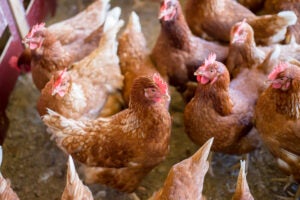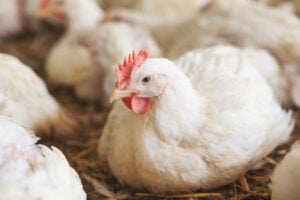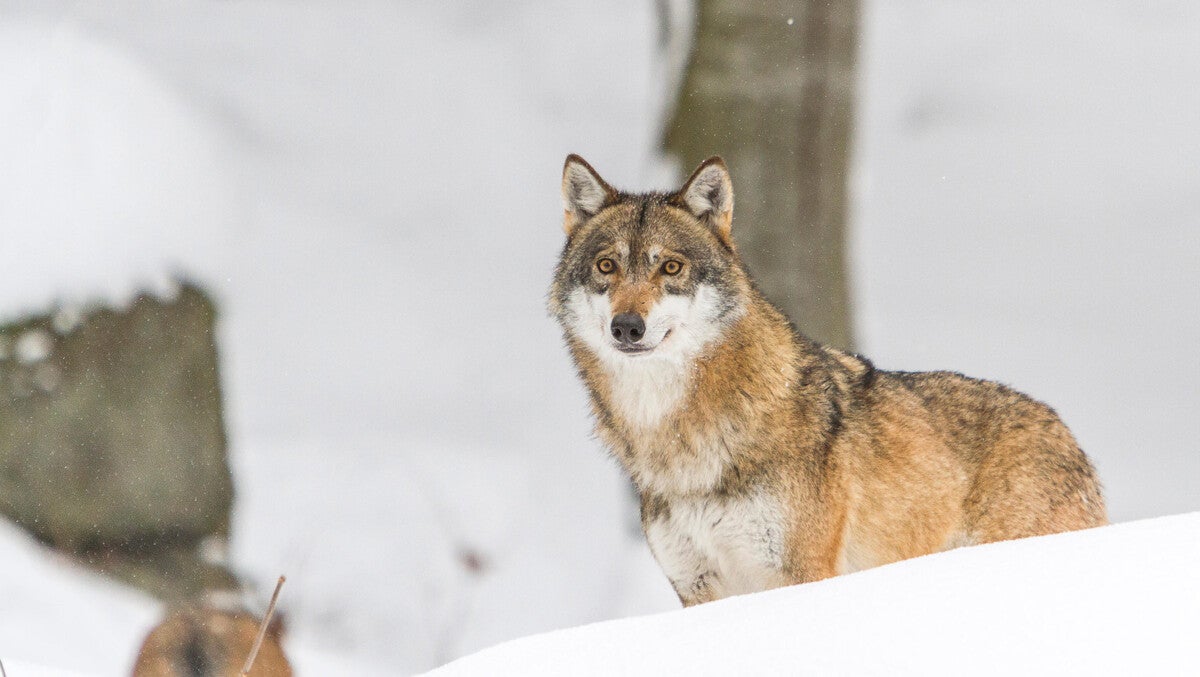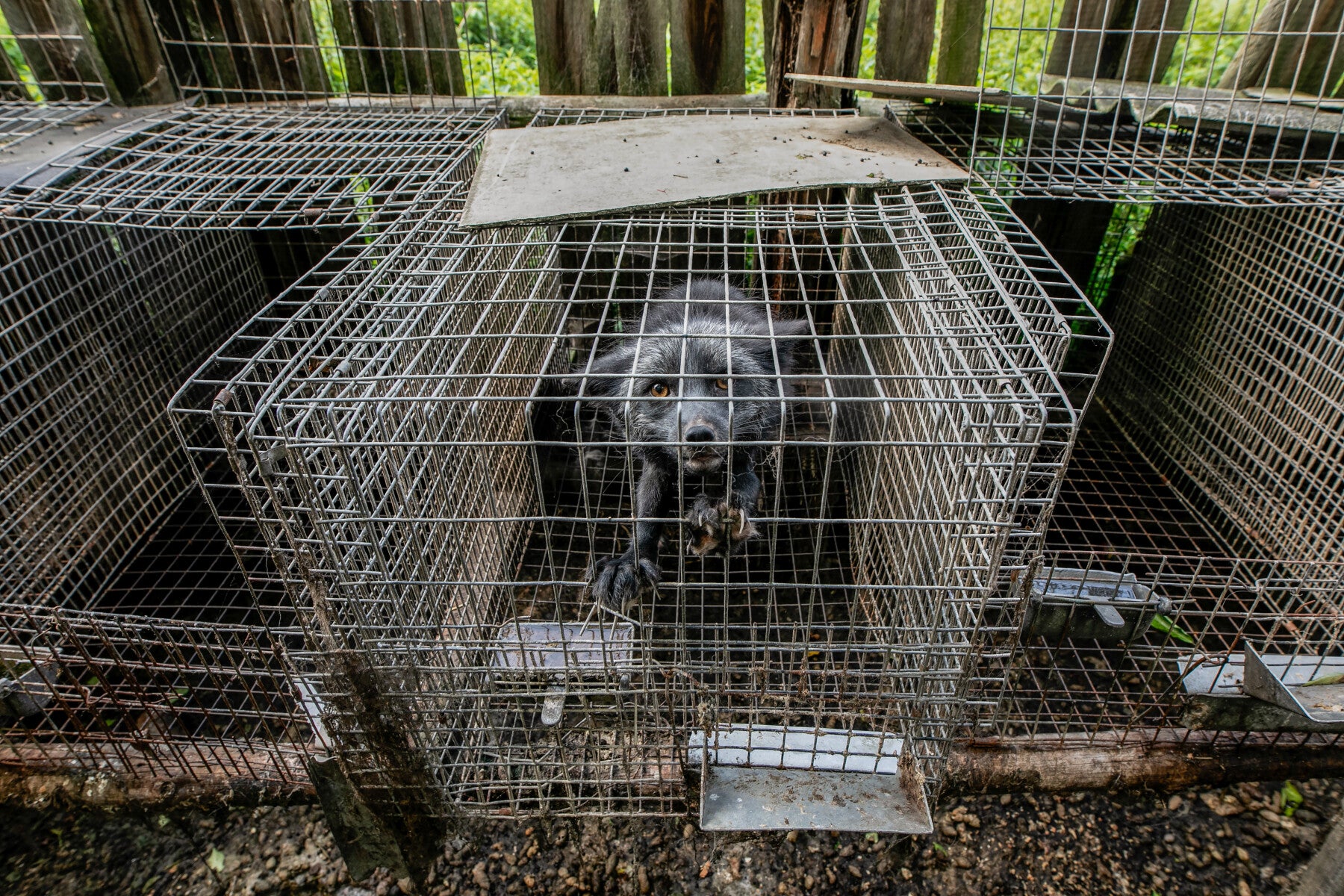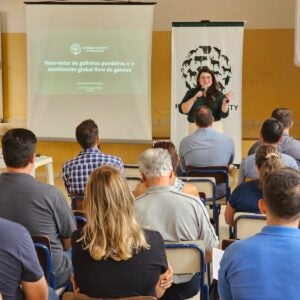
LONDON—More than 50 cross-party MPs and Peers attended a Parliamentary event calling for an end to fur imports and sales in Great Britain this week, meaning almost 200 MPs now support the Fur Free Britain campaign. Leading animal protection organisations Humane Society International/UK and FOUR PAWS UK organised the event, to encourage the Government to back the Fur (Import and Sale) Bill tabled last month by Ruth Jones, MP for Newport West and Islywn. Adam Jogee, Labour MP for Newcastle-under-Lyme, hosted the event, which was also supported by singer-songwriter Will Young.
During the event, appalling new footage from HSI/UK’s latest investigation on Finnish fur farms revealed the cruel conditions in which animals are kept in the fur industry. Attendees heard from cross-party MP speakers —Tim Farron MP, Sir Roger Gale MP, Adam Jogee MP and Ruth Jones MP—as well as Kristo Muurimaa of Finnish animal protection group Oikeutta eläimille who has investigated hundreds of fur farms; Mike Moser, former CEO of the British Fur Trade Association turned Fur Free Britain campaigner, and David Leigh-Pemberton from the British Fashion Council who spoke about the decision to ban fur from London Fashion Week.
Singer-songwriter and animal advocate Will Young demonstrated his support via a written statement read to attendees: “This Labour Government promised to ‘introduce the biggest boost in animal welfare in a generation’ and with [Ruth Jones’] Bill there is a real opportunity to deliver on this promise and make a difference to millions of animals. I hope to see the Government put its full support behind this Bill and make a ban on fur imports and sale one of Labour’s first ambitious improvements for animal protection in this session.”
The UK introduced the world’s first fur farming ban over 20 years ago. Despite this historic step, fur can still be imported and sold in the country. HSI/UK estimates that one million animals’ worth of fur is still imported here annually.
Confined in tiny, barren wire cages for their entire lives, animals on fur farms endure severe physical and mental suffering. They are killed by gassing or electrocution at around eight months old.
Fur farms also pose a major public health risk. Hundreds of outbreaks of COVID-19 have occurred on fur farms and, almost five years after the first reported case of the disease in China, a recent study in scientific journal Nature found dozens of novel viruses in animals from Chinese fur farms, sparking fears of a new pandemic. Leading virologists at Imperial College London have warned that fur farming should be considered in the same high-risk level category as the bushmeat trade and live animal markets.
After the event concluded, host Adam Jogee MP said: “I hear from my constituents about animal welfare issues on a daily basis and fur is no exception. But fur isn’t just an animal welfare issue, it’s a major health risk. Reflecting on COVID-19 almost five years on, the evidence shows that we cannot honestly claim to be doing all that we can to prevent another pandemic if we continue to support trade in a cruel, frivolous fashion product with shockingly high disease risks. I’m proud that the Labour Party banned fur farming over 20 years ago and now it’s time we take another historic step to protect animals and public health by backing Ruth Jones’ Bill and ending the UK’s role in the fur trade for good.”
Recent polling shows that 77% of the British public support a ban on the import of fur and over 1.2 million Fur Free Britain petition signatures have been gathered. Celebrities including Will Young, Dame Judi Dench, Stella and Sir Paul McCartney, Leona Lewis OBE, Alesha Dixon and Strictly Come Dancing’s Pete Wicks have backed the campaign.
Claire Bass, senior director of campaigns and public affairs at Humane Society International/UK, said: “The UK took a vital step by banning fur farming two decades ago and now Ruth Jones’ Bill represents a critical opportunity to end our involvement in this inhumane, unnecessary, and dangerous industry. We’re delighted that so many new MPs are joining us in urging the Government to back the Bill, reflecting public opinion that protecting animal welfare and public health are much more important than frivolous fur fashion.”
ENDS

